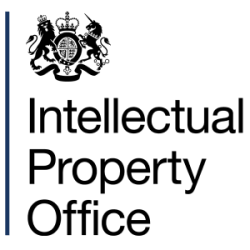
Arun Hill, Analytics Consultant at global IP services company, Clarivate, comments with IP trend predictions for 2022 and potential issues:
“The metaverse – a new frontier for IP issues
The advancement of immersive technologies like AR, VR and mixed reality is likely to have profound implications for patent prosecution – a more complex ecosystem will likely create new IP issues and even prompt some reflection on whether the law might be fit for purpose. While these doctrinal questions will probably be hashed out in copyright and trademark disputes, the technologies which enable these experiences will increasingly be considered as suitable for patent protection. For companies that ‘pay to play’ in this arena, they will have to consider ‘immersive IP’ as completely distinct and unique part of their overall strategic effort.
“Capitalising on privacy and security-preserving technologies
Following the regulatory trend there will be more pressure on organisations to consider privacy and security measures – both as a feature of compliance and in promoting trust in these technologies. In addition to a rise in patent filings related to technologies like IoT, 5G and distributed networks, we might also expect an increase in activity related to privacy and security-enhancing inventions. This could create opportunities to capitalise on the architectural aspects which have been baked-into a system ‘by design’.
“Bolstering ‘green’ innovation
In the wake of COP26, patent institutions will likely have to evaluate how ‘green technology’ is incentivised and whether a fast-track scheme may be an appropriate tool to be leveraged by industry.
“The AI Inventorship debate
The question of AI-derived IP ownership is unlikely to go away anytime soon. The recent decision of the UK Court of Appeal underscored the requirement for a human inventor, but there are many unanswered questions while consultations are still ongoing. It is increasingly difficult to reconcile different regional approaches, in favour of a harmonised approach AI inventorship. Until then, organisations will probably be tentative about making significant investment in prosecuting AI inventions as we continue to grapple with how they ought to be incentivised. The proposed EU AI Act will also have a knock-on effect on how players approach AI; it proposes risk-based rules to promote the safety of AI systems. If rolled out, it could have a similar extraterritorial effect to the GDPR, becoming the de facto standard for AI worldwide.
“Connectivity, 5G and SEP disputes permeating other sectors
In tomorrow’s connected world, 5G SEPs are set to become a major challenge and opportunity for industry 4.0. Focus will continue to shift from West to East, as the quantity and quality of 5G-foucsed standards will increase in the Asia Pacific Region and particularly, China. A wave of litigation will ensue, spreading beyond its origins in the automotive industry to other sectors such as medical devices which are deploying IoT-enabled technologies.”











